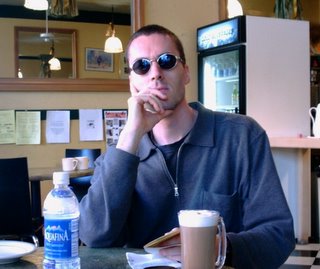Read/Write culture
Most marketers associate Consumer Generated Content with cheaply made YouTube’s videos that are supposed to replace the highly professional created TV commercials of Advertising agencies. This thinking underestimates the implication of the cultural shift to a read/write culture that is currently occurring. Let’s dissect the key forces behind this paradigm shift:
- Technology is changing. Technology democratizes the production and creation vehicles for self expression. No one needs anymore a technology worth of millions of dollars, one can create highly produced expressions with a few hundred dollars worth of soft- and hardware. Additionally the reduced complexity of these expression technologies and the lower expertise level to utilize these tools lowers significantly the threshold for anyone to be a creator
- Distribution is changing. The Web enables an immediate distribution for anyone’s artistic expression or innovation. The previously existing physical and financial limits for distribution have more or less vanished.
- The mind set is changing. Today’s individuals have a significant higher interest in self-expression, sometimes within the commercial realm, quite often without any immediate commercial interest in mind. Everyone is still a consumer of offered products and services but the difference between consumption and creation is getting smaller, thereby enabling more individuals to be on the creation side of things
- Brands are changing. Brands were always a central meaning device that simplified and enriched shopping and consumption experiences for the masses. Now Brands are becoming individual experienced meaning devices for which the control has shifted from the corporate owner to the uncontrolled space of interaction between brand and consumer. The central corporate power play is over.
Most marketers don’t understand that Consumer Generated Content is the wrong technical word, it’s about Individual Generated Content. It ranges from individuals who participate in deciphering the recommendation algorithm for Netflix, the story outline for Apple’s iPhone commercial, or the millions of bloggers who write frequently about their life, interests, and point of views. It’s not just about a cheaper produced commercial but about any marketing function that will be stronger influenced by the so called amateurs.
Marketers need to realize that their professional edge in current functional areas will be replaced by becoming enablers for brand stories that are created, told, and distributed by consumers. The focus for marketing professionals will change from story tellers to story enablers.


4 Comments:
Sometimes, I feel like the consumers generated contents are very similar to brainstorming. No one is expert, the marketer is more like a toastmaster and a story initiater. The challege is how to really "inspire" the participants and how to "facilite" them to talk~
Thank you for sharing a nice article.
Congratulations on your posts, not go from your site successful.
Like the modern layout.
jui6cs43vg
golden goose outlet
golden goose outlet
supreme outlet
golden goose outlet
golden goose outlet
golden goose outlet
golden goose outlet
golden goose outlet
golden goose outlet
golden goose outlet
Post a Comment
<< Home